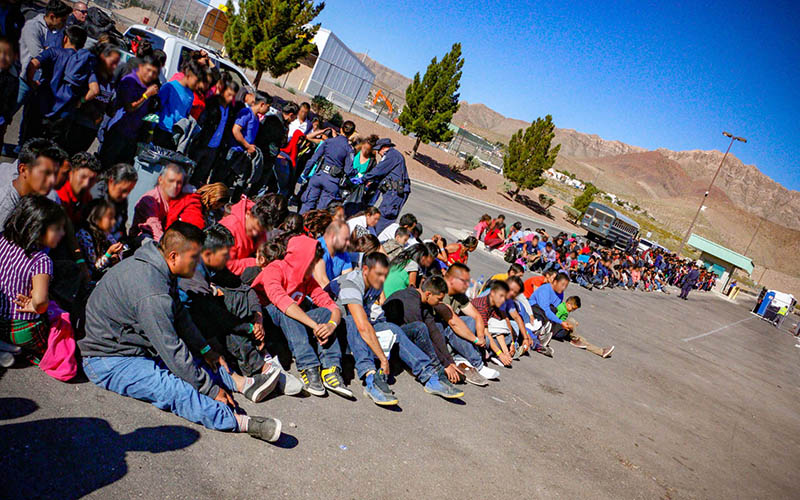WASHINGTON – The Justice Department is moving forward with plans to collect DNA samples from immigration detainees, including those without criminal offenses, raising alarms among both privacy and immigration advocates.
In a notice to be posted Tuesday to the Federal Register, the department said the proposed change would bring people with immigration violations in line with anyone else arrested or detained by federal agents. Doing so makes sense because “most immigration detainees are held on the basis of conduct that is itself criminal,” the notice says.
Specifically, the new rule would remove an exemption to the DNA Fingerprint Act of 2005 that let the Homeland Security secretary decline to collect DNA from migrants if it was not feasible. The exemption was invoked by then-Secretary of Homeland Security Janet Napolitano in 2010.
The change would expand the practice of DNA collection – previously used on criminal suspects or those convicted of crimes – to nearly all migrants who spend time in federal custody, no matter how briefly. Their DNA profiles would be uploaded to the FBI’s Combined DNA Index System, or CODIS, alongside profiles of those arrested on criminal charges.
The proposal was attacked by the Congressional Hispanic Caucus, which said in a tweet that it is a waste of resources and “only helps further (President Donald) Trump’s false rhetoric that all immigrants are criminals.”
That was echoed by Saira Hussain, a staff attorney with the Electronic Frontier Foundation, who said the Trump administration is “essentially trying to conflate people who are seeking asylum with people who have committed criminal acts.”
But the department says in the notice that collecting DNA from criminal arrestees and immigration detainees “furthers the interests of justice and public safety without compromising the interest in genetic privacy.”
The notice also stated that “except for ‘the unparalleled accuracy DNA provides,'” collecting such samples is “functionally no different from the corresponding use of fingerprints,” which the government already collects from individuals in its custody.
But Hussain said a DNA sample – typically collected through an oral swab – contains more genetic information than a fingerprint does.
“DNA is not just for identification purposes like fingerprinting is, it can tell a lot more information,” she said. “What’s especially concerning is that, once the government collects it and puts it into CODIS, where it will stay indefinitely, what other purposes could it potentially be used for in the future?”
Hussain said it is nothing new to collect DNA samples from criminals or criminal suspects “because you want to compare and see whether this person has been identified as potentially a perpetrator in any sort of other crime.”
But broadening that to people facing civil immigration violations presents a host of problems – not least of which is whether the government can adequately train Border Patrol agents to collect thousands of DNA samples at the border.
“There’s another question – how does somebody take a sample, and how do you know the information won’t be compromised, especially if these agents aren’t trained to do this?” Hussain asked.
But the DOJ said in a statement on Monday that FBI laboratories can be “scaled up” to handle additional capacity, and that the agency will provide DHS with collection kits and analyze the samples to ensure the proper results.
“DHS supports the objective of increasing DNA collection for the CODIS database and has been working with DOJ on a forthcoming pilot program to ensure consistent and credible DNA collection that complies with all applicable rules, regulations and laws,” a Homeland Security spokesperson added in an email.
The rule will be subject to a 20-day public comment period before it can go into effect – and it’s possible that it will face legal challenges over privacy concerns before that time is up.
“Once the government has your personal information, what happens as technology advances?” Hussain said. “You could apply that to analyzing or using your DNA information in ways that you hadn’t imagined previously.”
Another concern among privacy and immigration advocates, according to Hussain, is that once the information is collected, it exists “essentially indefinitely” in the FBI database.
“It’s beyond anything that I think we’ve seen previously,” Hussain said.


